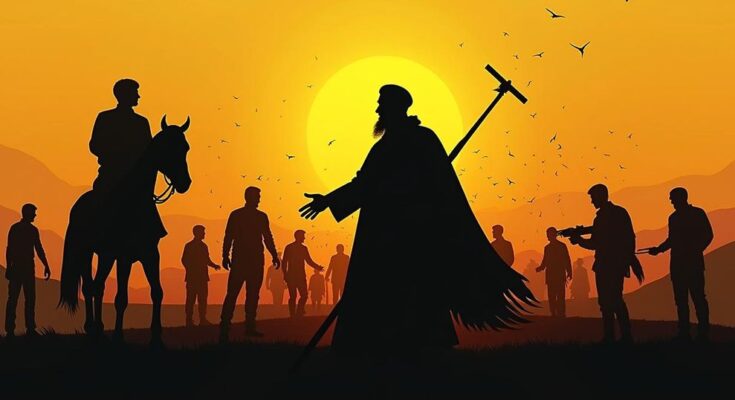Sayyed Hassan Nasrallah, Hezbollah leader, is reportedly killed by an Israeli airstrike, according to military sources. Leading the group for 32 years, Nasrallah has been a pivotal figure in Hezbollah’s transformation into a regional military power. The implications of his possible death are profound as he is viewed as both a revered and divisive figure in the context of Middle Eastern conflicts.
Sayyed Hassan Nasrallah, the long-standing leader of Hezbollah, is reported to have been killed according to Israeli military sources. Nasrallah has presided over Hezbollah’s evolution from a militant group into a significant military power in the region, with the backing of Iran. His leadership began in 1992, following the assassination of his predecessor, and since then he has been a central figure in numerous conflicts with Israel, including the significant war in 2006 that he characterized as a “divine victory.” The Israeli military claims to have executed an airstrike targeting Nasrallah’s location in Beirut, a statement made official by army spokesperson Avichay Adraee. Should Hezbollah confirm his death, Nasrallah would be remembered by his supporters as a resolute adversary to both Israel and United States influence in the region. Despite a recent escalation in military exchanges between Israel and Hezbollah, Nasrallah has traditionally articulated a strong stance against any colonial or imperial influence in the Middle East. He has also faced criticism for Hezbollah’s role in regional conflicts, notably in Syria, which some see as exacerbating sectarian tensions while others view it as an extension of resistance against jihadist forces. Hezbollah has not released any statements regarding Nasrallah’s purported death, and his silence following the Israeli airstrike on Hezbollah communication lines is noted as unusual. Since the onset of the Gaza war, launched by Hamas against Israel, Hezbollah has joined the conflict, leading to significant military casualties among its ranks. Nasrallah’s influence has been notable throughout his tenure, becoming a figure of respect among various Arab audiences for his steadfastness against Israeli actions. His background as a poor Lebanese Shi’ite shaped his political ideologies and fueled his rise as a prominent leader, particularly following the death of his son during the conflict with Israel, which cemented his legitimacy among supporters. In his time as Hezbollah leader, Nasrallah has faced powerful adversaries both externally and domestically. He defended the organization during accusations of involvement in the assassination of former Prime Minister Rafik al-Hariri, asserting that any legal pursuit against Hezbollah was politically motivated. The group, under his guidance, has taken on significant adversarial roles not only against Israel but also against the influence of U.S. and Saudi Arabia in the region, warning against miscalculations regarding the power of Iran in the Middle East.
Sayyed Hassan Nasrallah, born in the economically deprived Karantina district of Beirut, has been at the helm of Hezbollah since 1992. He is a critical figure in Middle Eastern politics, particularly among Shi’ite communities, where his leadership reflects both localized grassroots support and broader geopolitical alignments with Iran. His organization, Hezbollah, emerged from the framework of Iranian Revolutionary Guards and has evolved into a significant military and political force. Throughout his leadership, Nasrallah has navigated through considerable conflict eras including the Israeli occupation of Lebanon, the 2006 war, and the continuing ramifications of the ongoing Gaza conflict. His leadership style has garnered both support and controversy, dividing opinions in Lebanon and amongst Arab nations, particularly as Hezbollah expanded its operations into Syria and engaged in regional sectarian battles. Nasrallah’s tough rhetoric regarding U.S. and Israeli interests has positioned him as a formidable actor in the complex web of Middle Eastern alliances and conflicts, emphasizing Iran’s influence and Shi’ite solidarity against perceived aggressions.
In conclusion, should the reports of Sayyed Hassan Nasrallah’s death be confirmed, his legacy will remain complicated. He is viewed as a stalwart leader by his supporters for his unwavering resistance to Israel and U.S. influence, whereas his critics condemn him as a terrorist figure whose actions have drawn Lebanon into wider regional conflicts. His tenure has forged not only a military organization in Hezbollah but also a significant political player in Lebanese and regional dynamics, marking his influence over the shifting landscape of Middle Eastern politics.
Original Source: www.voanews.com




